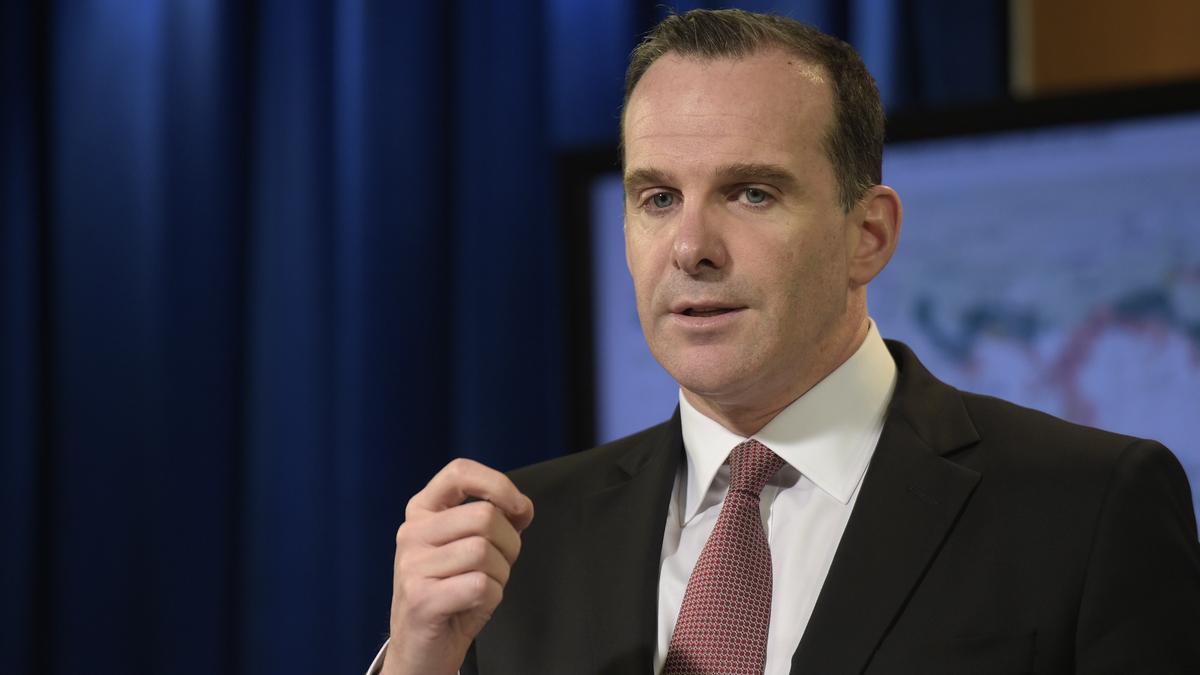President Joe Biden’s top Middle East adviser on Tuesday (August 27) held talks in Doha with senior Qatari leaders on the efforts to complete a cease-fire and hostage deal between Israel and Hamas as well as Qatar’s prime minister meeting this week with Iran’s president, according to a U.S. official.
White House senior adviser Brett McGurk’s talks with Prime Minister Sheikh Mohammed bin Abdulrahman Al Thani and Foreign Affairs Minister Mohammed bin Abdulrahman Al Thani come after the prime minister’s Monday visit to Tehran to meet with Iran’s President Masoud Pezeshkian.

The talks also come as cease-fire talks aimed at winning at least a pause in the war between Israel and Hamas are shifting to Doha this week after several days of intense negotiations in Cairo. A round of high-level talks ended Sunday without a final agreement. But talks continued at lower levels Monday in an effort to bridge remaining gaps.
Those working-group level talks are now expected to resume Wednesday in Doha. It was not clear why the location of the talks shifted from Cairo or whether this will have an impact on negotiations.
An Israeli official, speaking on condition of anonymity because they were discussing sensitive cease-fire talks, confirmed an Israeli delegation will head to Doha on Wednesday.
The U.S. official, who was not authorized to discuss the sensitive talks publicly and spoke on the condition of anonymity, confirmed that McGurk met with the Qatari officials and the focus of their conversation.
Also Read | Unending war: On the multi-party war in West Asia
Tensions have been escalating between Israel and Iran, and with militant groups — Hamas, Hezbollah, and the Houthis — that are backed by Tehran. Iran has vowed to retaliate against Israel for last month’s assassination of Hamas political leader Ismail Haniyeh last month in Iran.
Iran’s supreme leader Ayatollah Ali Khamenei on Tuesday expressed openness to renewing negotiations with the United States over his country’s rapidly advancing nuclear program, telling its civilian government there was “no harm” in engaging with its “enemy.” The timing of Khamenei’s remarks came just one day after the newly minted Iranian president’ visit. There have been indirect talks between Iran and the U.S. in recent years mediated by Oman and Qatar, two of the United States’ Middle East interlocutors when it comes to Iran.
Mr. Biden earlier in his presidency had pressed Iran to return to compliance with the nuclear deal that was brokered by the Obama administration in 2015 but scrapped in 2018 by former President Donald Trump.
Since the deal’s collapse, Iran has abandoned limits that the agreement put on its program, and is enriching uranium to up to 60% purity — near weapons-grade levels of 90%. After the October 7 attack on Israel by the Iran-backed Hamas, the U.S. administration has put efforts to revive the nuclear agreement on the shelf.
Mr. Pezeshkian, 69, who ran as a reformist politician within Iran’s Shiite theocracy, was elected last month to replaced he late President Ebrahim Raisi, a hard-line protégé of Khamenei, killed in a helicopter crash in May. The new president is closely aligned with former Foreign Minister Mohammad Javad Zarif, who reached Iran’s 2015 nuclear deal with world powers that saw sanctions lifted in exchange for the atomic program being drastically curtailed.













